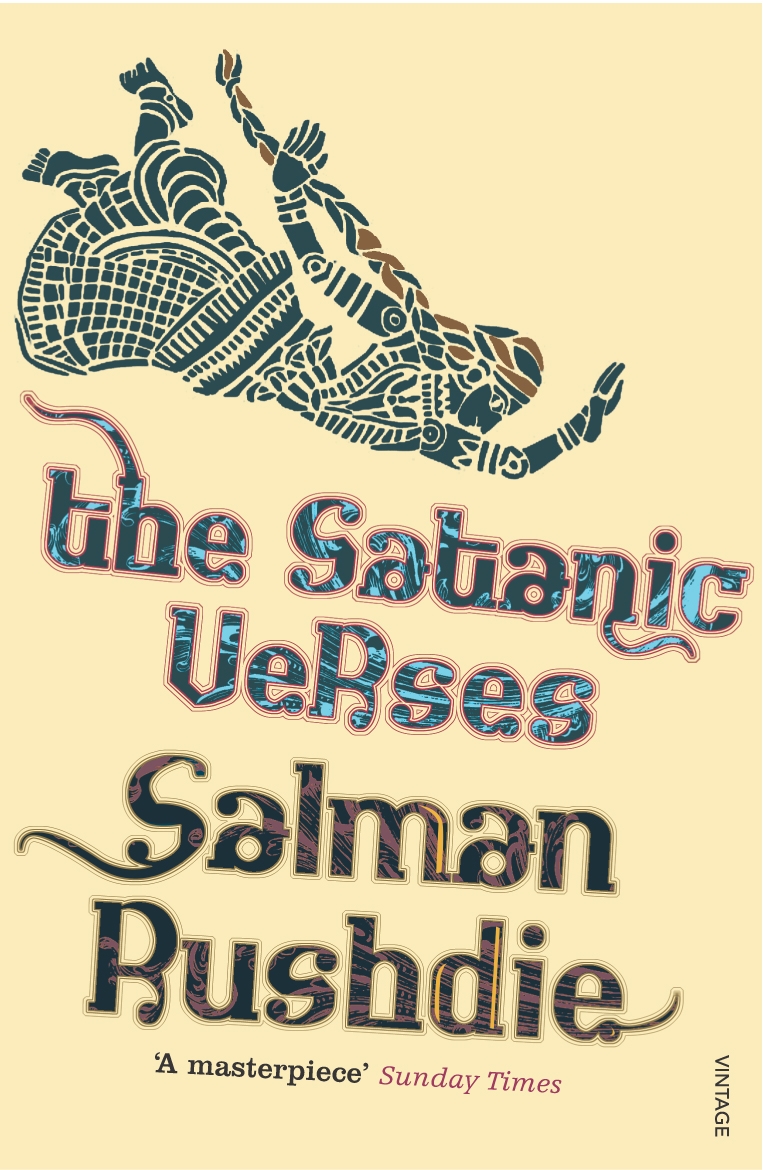 , as you guys know by now, part of my 101 in 1001 list is to finish reading this list of 50 banned books. And I'm already 21 in! Get excited. This past week, I finally finished reading The Satanic Verses by Salman Rushdie, and let me tell you: it was intense. I won't lie, it was not an easy read. I know summer is coming up, but this is not beach material, people! If you choose to read this, read it when you have time to actually sit down and think through what you're reading and understand it.
, as you guys know by now, part of my 101 in 1001 list is to finish reading this list of 50 banned books. And I'm already 21 in! Get excited. This past week, I finally finished reading The Satanic Verses by Salman Rushdie, and let me tell you: it was intense. I won't lie, it was not an easy read. I know summer is coming up, but this is not beach material, people! If you choose to read this, read it when you have time to actually sit down and think through what you're reading and understand it.This is a story about God and the devil, set in a magical realm where they fight a battle of sorts through the fantastical experiences of the two main characters. Saladin Chamcha and Gibreel Farishta are both Muslim actors who are on a place that happens to be hijacked on it's way to England. Their adventure begins as they fall to Earth together after the plane blows up, landing off the coast of England, miraculously alive but greatly transformed. The book takes on a mystical element after that, telling mainly the story of Chamcha and Farishta and their lives after the terrorist hijacking, but also numerous other subplots that intertwine, confusing a reader that doesn't pay attention carefully. But that's what Rushdie wanted.
The book utilizes contemporary issues, basing characters off of real people and places. The title refers to what are known as the satanic verses, a group of alleged Qur'anic that allowed for prayers to be made to three pagan goddesses, Allat, Uzza, and Manat. This is what makes the book controversial: Muslims consider these references blasphemous. The book was banned in India, caused unrest in the UK, and was the subject of an all out riot in Pakistan in 1989. Following the riot, the Ayatollah Ruholla Komeini, Supreme Leader of Iran (and a Shi'a Muslim scholar) issued a fatwa against Rushdie, meaning that any good Muslim was technically supposed to do whatever possible to kill him or ensure he was killed. Hot. Damn. Of course, the British police weren't going to allow this to happen and Rushdie remains safe to this day. The same can't be said of all his publishers though -- the fatwa was against them as well, and several have been injured and even killed because of this book. Komeini has since passed away and the hype seems to have died down some, though the book is still banned in Bangladesh, Egypt, India, Iran, Kenya, Kuwait, Liberia, Papua New Guinea, Pakistan, Senegal, Singapore, Sri Lanka, Tanzania, and Thailand.
Rushdie, honestly, is a brilliant story-teller. There were parts I had to reread to understand, but I think that's more a tribute to his genius and says more about how easily distracted I am than anything. Definitely add this to your To Read list. I've already added the rest of his novels. :)


No comments:
Post a Comment
Commenting? How lovely. Please try not to talk about dead cats.